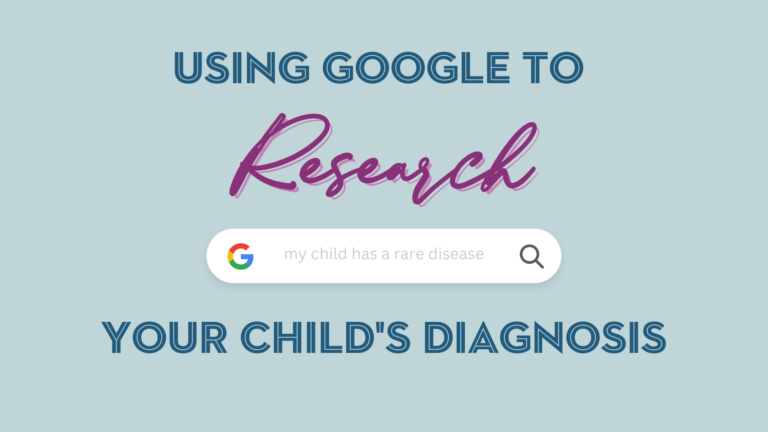Understanding SPD & Myths About Autism
Note: I may earn money or products from the companies, products, or links mentioned in this post.
 I haven’t written about this in awhile, but as you know my son was officially diagnosed with Autism and SPD in August of 2012. We knew he had issues since birth, but we were not able to get answers until almost two years later and we are thankful that we DO have some answers. Since then, I have been my son’s advocate. Researching, reading, and searching for answers, help and therapies that can help my son and trying to help others understand what we go through and what my son goes through on a daily basis.
I haven’t written about this in awhile, but as you know my son was officially diagnosed with Autism and SPD in August of 2012. We knew he had issues since birth, but we were not able to get answers until almost two years later and we are thankful that we DO have some answers. Since then, I have been my son’s advocate. Researching, reading, and searching for answers, help and therapies that can help my son and trying to help others understand what we go through and what my son goes through on a daily basis.
Recently, I came across a video of a little boy who had SPD and Autism. He explained in his own words how this felt and how it affected him in his daily life. I have no doubt that if my son, Adam was the same age as this little boy he would have said the exact same things, because the little boy explained perfectly what I see every day. My hope is that someone will see this video and be helped to understand what exactly SPD is.
Did you know that every child that has Autism has SPD, but not every child who has SPD has Autism? That means every autistic child has severe sensory problems as well. These things affect my son’s daily living almost every single day and the therapies he goes to 9-10 times a week are to help him deal with and get past those things in an appropriate way.
Because I want my family and friends to understand this better, here are some myths I have heard about Autism that are just no true. I hope that as people learn more about this they will adjust their views and realized what Autism and SPD is really about.
Myths About Autism:
- “He’s too smart to be Autistic.” A lot of Autistic children are very very smart and I think that it’s their symptoms that make them so. They see the world so much more differently than we do and I think they are just wired differently. Being smart doesn’t mean they don’t have other issues, being smart means that they have strengths in certain areas and eventually that will help them to cope when they are older.
- “He has good eye contact so he must be fine.” We have heard this even from doctors who didn’t believe my son had Autism. Eye contact is NOT the only symptom. There are so many things that define a child with Autism, you cannot simply look at him and say, “he has good eye contact” and move on. It is so much more than that and so many other things go into a Autism diagnosis. We had to have 4 interviews and fill out over 50 pages of paperwork to get my son’s diagnosis. So as you can see a lot goes into this other than, “He has good eye contact.”
- “Don’t worry one day he will just start talking and never stop.” I cannot tell you how many times I have heard this, but to be honest it just does not work that way with Autistic children. It’s more than them just being behind in speech and having to catch up. Other factors factor in such as muscle tone, and even Apraxia. Adam was born with no muscle tone in his cheeks and face. Over time it has gotten better, but that is something they have had to work on in therapy. He was not able to chew at first and he has a hard time talking. Several of his therapists think he may also have Apraxia which is a brain disorder where he knows how to say the words, but cannot physically say them. It will take years of speech therapy for him to talk normally, so it really is not possible for him to one day wake up and just know how to talk.
- “He doesn’t talk because you talk for him.” First, I would like to point you back to the paragraph above. Read it? Ok good. Adam has a hard time talking. He only says a handful of words and just because he CAN say them, doesn’t mean he ALWAYS says them. Sometimes he doesn’t say any real words all day unless I really try hard to work with him to get him to say something. What may look like “babying” to you is really working hard to understand him and to help him be understood by others. We have taught him signs and other ways to communicate with us and until he gets better, we will always be there helping him “talk.”
- “I hope you never give him shots again.” I don’t want to start a huge argument about shots and Autism. But I will say this: Adam was BORN with this. He had problems as soon as he came out of the womb. He failed to get hungry in the first 24 hours of birth. He was not physically able to latch on to a bottle or breast in the beginning which we found out later was because he had no muscle tone. He had to be fed with a dropper for the first 24 hours and then wit preemie bottles for a week. And even when we transitioned to regular bottles, he struggled for months. This was something he was born with, not something that developed over time and not something that developed after shots.
- “Once he has a breakthrough in therapy he does that thing consistently and all the time right?” I wish this was the case every time. Adam has had multiple breakthroughs in therapy with different things, but the main thing has been with his feeding therapy. He has tried bread and other things and we were very happy. The problem is, just because he tried a piece of bread one day does not mean he will always eat bread from now on. Every day is a battle to keep introducing bread to him and to get him to eat it again. Adam tried bread almost 6 months ago and has not eaten a piece since. It’s just the way it goes with these thing sometimes and it can be the same thing in other areas too. So yes, breakthroughs are wonderful, but continue to pray that they happen again and again, not just once.
Are You an Special Needs Parent? What Myths have you heard in dealing with your child’s special needs?







I get, “I thought he had Asperger’s? Seems normal to me. ” Because some times he acts like a normal child. Other times he really really doesn’t. Then sometimes people don’t understand when he doesn’t want to act like a regular child with him. We were in Chick-Fil-A and this sweet older man came up to give our kids high 5’s. This was very weird to Drew so he just look at him and I think the man was kinda offended but that is just how Drew is.
It can be hard when people don’t totally understand.
Yup I have gotten the “seems normal to me” or the “oh my child does that too.” Umm really? LOL I totally agree with you though sometimes Adam acts normal and other times he doesn’t it’s hard to explain that! So glad you understand and we can be in this together!
Wow, what an incredible video, thank you for sharing. Tara (The Proverbs 31Sanctuary)
Thanks for watching and stopping by!
As an active parent you should consider that if you are a parent of children with Autism, then you should not believe everything about Autism.
There are so many misconception about this disorder, so you should first go for the truth by consulting the info with your mental health expert.
Your totally right! Thank you so much for the link. Thank you for commenting.
If you have not read the book” Defying Autism” By Karen Mayer Cunningham Please get it and read it. I think this book will give you a lot more information. It is a wonderful book and I seen her on Christian T.V. telling about her son and this book. i do not have a child with this, but her information and the book was so good I sent and got it. I think this book will bless you.
Thanks for letting me know about the book. I will defiantly check it out.
Thanks for commenting!
This is great! I was diagnosed with this as a child (they called it sensory integration disorder at the time). I am not at all Autistic but too this day I CANNOT drive a car. I flip out. Too much happens at once. I get a headache and I can’t process it all. I have taken the driver’s test about 8 times since I turned 16 (I am 31 now) and have failed every single time. I have tried to find resources for adults with SPD and I don’t know what to do about getting jobs that I apply for to accept that I can’t have a driver’s license since I have nothing on the books about it as it was a chlidhood diagnosis. This is a great explanation! Thanks for sharing.
Kathryn,
I just found your blog today. I too have a child who was diagnosed at age 2 with PDD-NOS…and experienced many if not all of the feelings you have described. However, my son has recovered and was healed of his gut disorders 3 years ago. He is now almost 9 years old and you would never know of his past. If you haven’t read the book recommended above “Defying Autism” , please get it. This boy’s story was VERY similar to ours. I didn’t read the book however until over a year after my son was healed. After you read it, if you would like to hear my story, you may email me. Hopefully I’ll finish the book I’m writing someday as well.
I feel that I wasn’t specific enough in my post. I want you to know that we are strong believers and that God healed our son instantly and miraculously of the severe gut disorders. The autism was a gradual healing but he has been officially off the spectrum for 3 years, and we had the number one autism specialist in our state diagnose him and remove his diagnosis. I hope this gives you hope. We have quite a story, so I wanted to just reach out to you today.